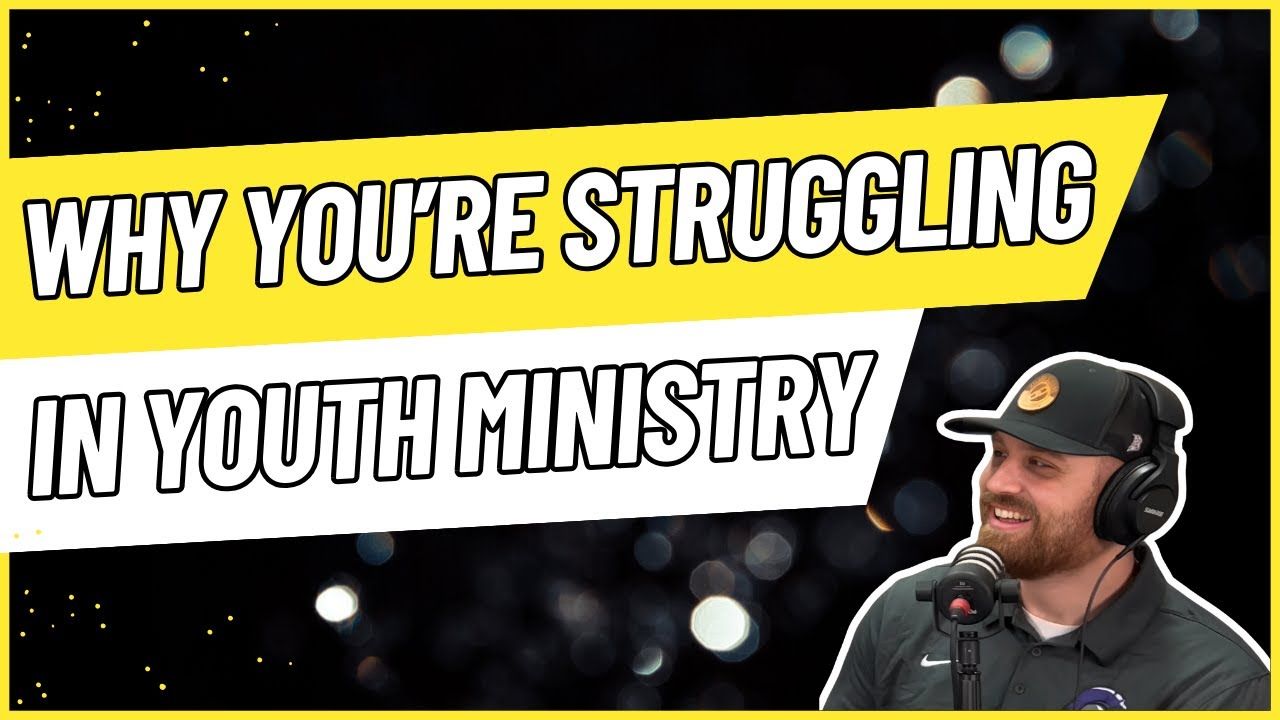What The Class of 2025 REALLY Wants From Youth Ministry!
Beyond Graduation: Keeping Upperclassmen Engaged in Youth Ministry
Welcome to the Beyond Youth Room podcast! In this insightful episode, Ryne and Keith dive into a crucial topic for every youth pastor: how to keep upperclassmen actively involved in youth ministry, especially as they navigate the exciting and often distracting realities of their junior and senior years.
Check out the podcast
here.
Understanding the Landscape
Ryne and Keith kick off by acknowledging the unique position of upperclassmen. They emphasize that the class of 2025 is the largest graduating class in American history, highlighting the sheer number of seniors facing new responsibilities and transitions. This often leads to what they playfully term "spiritual senioritis" – a dip in motivation and engagement as graduation looms.
It's vital, they argue, to understand this reality. Expecting seniors to maintain the same level of involvement as younger students might lead to frustration. Sometimes, the most supportive thing a youth pastor can do is acknowledge that their priorities might be shifting due to jobs, college applications, and increased responsibilities. This isn't heretical; it's understanding the season of life they're in.
Five Key Strategies for Engagement
Instead of lamenting the changing landscape, Ryne and Keith offer five practical strategies to keep upperclassmen connected and growing:
- Build Relationships Starting in Sixth Grade: Programs might attract students, but it's genuine relationships that keep them invested. By fostering strong connections early on, youth pastors create a sense of belonging and camaraderie that extends through their high school years. Ryne shares a heartwarming anecdote about his seniors choosing to have their own pre-senior dinner, highlighting the deep friendships formed within the youth group. These bonds often extend beyond the ministry walls, providing a vital support system as they transition to college and beyond.
- Focus on Their Ownership of the Gospel, Not Ownership of the Program: While involving upperclassmen in practical tasks like setting up or running sound can be helpful, their engagement should go deeper. The goal is for them to see the youth group as a vehicle for growing God's kingdom, not just a program to participate in. By empowering them to own their faith and actively participate in discipleship – both receiving and giving – their commitment becomes rooted in something far more significant than logistical support. As Keith aptly puts it, focus on their ownership of the gospel, because the strategies and programs will inevitably change.
- Create Opportunities for Relevant Discipleship: The questions and challenges faced by a twelfth grader differ significantly from those of a sixth grader. The most effective discipleship addresses the specific needs and inquiries of the older students. Ryne shares an example of shifting to a more mature discussion on God's design for sex and intimacy with their older students after separating the middle and high school groups. This created a space for deeper engagement and honest conversations. The key is to listen to the questions they're actually asking and provide opportunities for them to grapple with more complex issues of faith and life. Avoid the trap of repeatedly covering foundational topics that they may have outgrown.
- Celebrate What You Want to Replicate: Underclassmen are always observing how leaders treat and celebrate the older students. By intentionally highlighting the positive actions and faith journeys of juniors and seniors, youth pastors set a powerful example. This could involve publicly acknowledging their commitment, celebrating their gospel conversations (good, bad, and ugly), and recognizing their growth. Keith mentions their tradition of sharing gospel conversation stories as a way to inspire others.
- Create Special Traditions: Developing unique and meaningful traditions specifically for upperclassmen can create lasting memories and reinforce their value within the youth ministry. Ryne shares their "last night of summer camp" tradition where juniors and seniors stay up late for a special conversation and affirmation. He also mentions a senior trip where the destination is a surprise, building excitement and a sense of anticipation. These traditions communicate value and create a unique bond with the youth leaders and the ministry.
The Power of Investment
Ultimately, Ryne and Keith emphasize the importance of intentional investment in the lives of upperclassmen. By understanding their changing realities, fostering deep relationships, empowering their ownership of the gospel, providing relevant discipleship, celebrating their growth, and creating special traditions, youth pastors can navigate the challenges of senior year and continue to see these students thrive in their faith, even as they prepare to step beyond the youth room.











